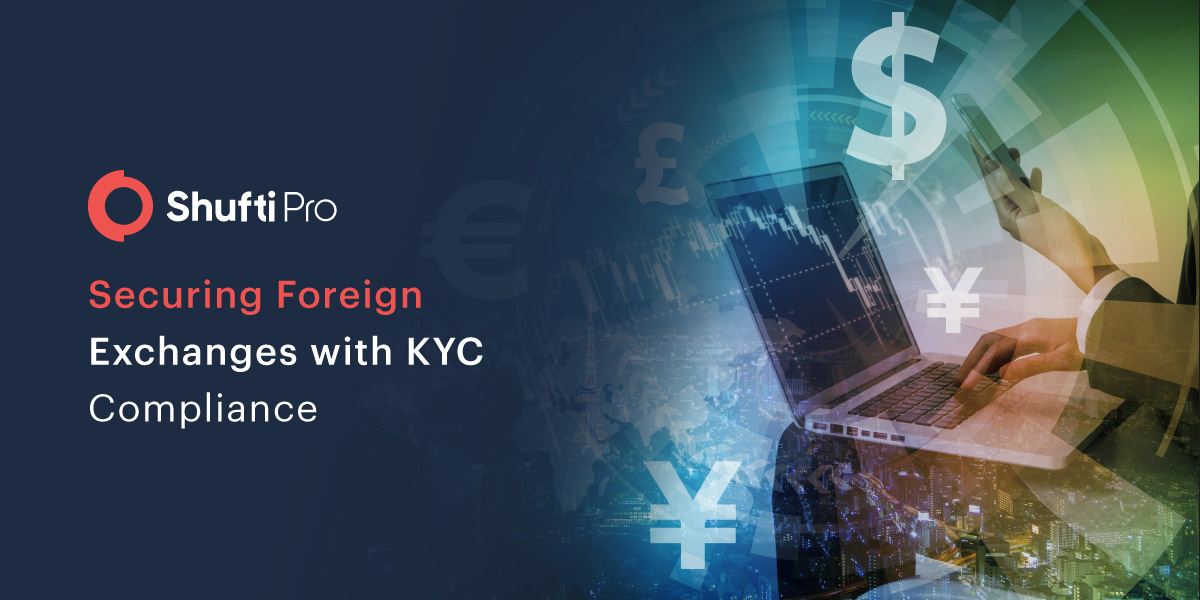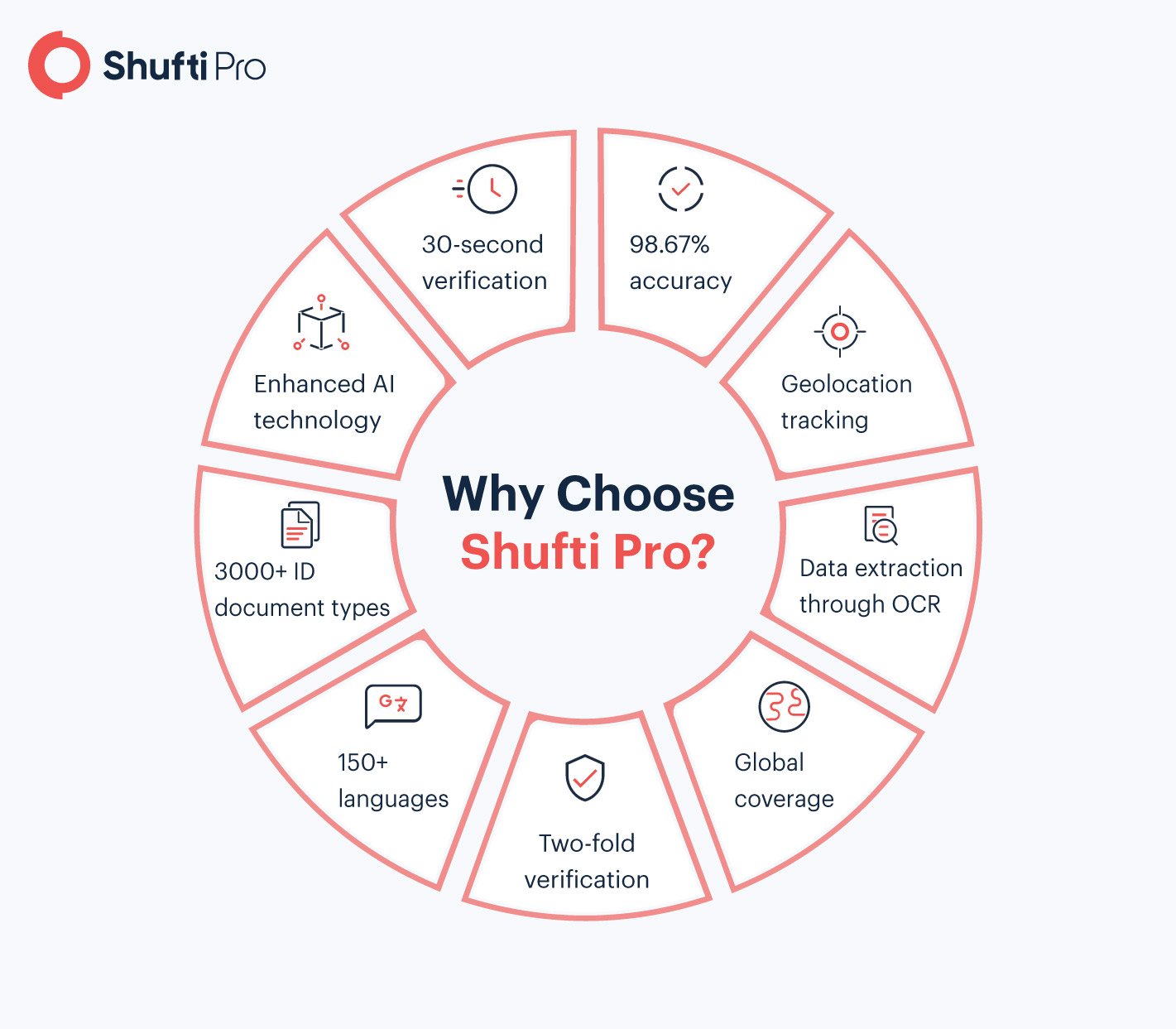Forex Market – Are there Enough KYC/AML Regulations to Keep Perpetrators at Bay?

Regulatory pressure, hefty penalties and increasing criminal instances are some risks associated with foreign exchanges. With a daily trade volume of $6.6 trillion, the sector has become a lucrative target of bad actors. Just like the crypto sector, there are many loopholes in this sector’s regulatory framework. Although regulatory bodies are working on enforcing rigid customer due diligence (CDD), anti-money laundering (AML) and countering the financing of terrorism (CFT) policies, businesses in the forex market can do a lot on their own to keep fraudsters at bay and avoid hefty penalties.
What are the KYC/AML Requirements for Foreign Exchanges?
Although FATF’s risk-based approach can be followed by this sector, it does not have the force of law. Hence, there is no universal regulation that specifies KYC and AML requirements for foreign exchanges. The laws vary across countries and some obligations may overlap in certain jurisdictions.

The Current Regulatory Landscape
There are certain KYC and AML regulations for the forex market in different corners of the world. Let’s take a quick look at the major ones here.
MiFID II
MiFID II or Markets in Financial Instruments Directive II came into force back in January 2018. From banks to foreign exchanges, the Directive covers all aspects of virtual trade within the European Union (EU). This directive aims at bringing more transparency and efficiency in the market by harmonising laws across financial markets in the region, and in turn making trade polices and procedures in the EU secure.
Suggested: KYC in 2021 – Shaking Things Up in the Financial World
United States
The US falls under high KYC/AML requirement jurisdictions, which means one violation can result in a seven-figure penalty for the firm. The legislations for foreign exchanges include Bank Secrecy Act and USA Patriot Act. The regulatory body, FINRA devises and enforces regulations in the region, and as per the requirement, foreign exchanges must collect personally identifiable information (PII) for individual identification. A customer risk profile must be created and ongoing customer due diligence is mandatory. A fine of more than $1,000,000 will be imposed otherwise.
Cyprus
The regulatory body of the country, Cyprus Securities and Exchange Commission (CySEC) is responsible for monitoring the forex market and issuing licences to brokers. The legislation imposed on the country is the Directive of the Central Bank of Cyprus that directs all foreign exchanges to collect name, phone number, address, signature, date and place of birth along with employment details from customers. CySEC has made enhanced due diligence mandatory under the following circumstances:
- A lucrative or suspicious transaction takes place
- The legal status of the customer changes
- Customer account operation method changes
Although Cyprus has moderate KYC/AML requirements, non-compliance leads to a penalty of €200,000 is levied. In case the offence continues, $1000-fine is imposed every day.
Suggested: AML Non-Compliance Penalties Soaring Sky High in the First Half of 2021
Bulgaria
Bulgaria has minimal requirements for identity verification and screening of customers. Nevertheless, the country is following the fourth Anti-Money Laundering Directive (4AMLD) and Measures Against Money Laundering Act, 2008, Amended in 2018. The compliance requirements include identification of individuals and UBOs, whereas non-compliance results in fines as low as $600-$6,000 for legal entities and $300-$3,000 for individuals.
Recommended: | 6AMLD of EU – A detailed insight
Why Do Imposters Target Foreign Exchanges?
Forex is like a goldmine for bad actors and for all the right reasons. Out of many vulnerabilities of the system, here are the top three reasons why imposters target the FX sector for their illicit activities.
Anonymity
To a certain extent, participants of the industry get anonymity making it a whole lot easier for bad actors which other financial services do not offer. Under the local reporting thresholds, imposters launder black money without triggering any AML/CFT measures designed to monitor transactions, verify IDs and transfer funds to other lower-regulation jurisdictions. On the other hand, criminals may use money mules to thwart the identity verification system (if any). Since the majority of the foreign exchanges operate online, companies may not be able to keep a constant eye on every transaction while fraudsters get a chance to operate behind the anonymity veil.
Structuring
The disparity in KYC/AML regulations across jurisdictions makes a viable situation for criminals to execute their ill plans. This difference makes the legal financial system vulnerable to structuring stage of money laundering. Once black money enters the financial system, structuring lets crooks conceal the origin of money, making it difficult for financial authorities to keep track of the transactions.
In a foreign exchange, there are multiple individuals making numerous transactions and that too in different currencies. Ultimately, the funds laundered make their way back to the mastermind (the originators of illegal transactions) with no footprints to trace the source of black money.
Ownership
The proliferation of forex services has enabled criminals to acquire ownership of business in this sector. Since online presence is enough for a foreign exchange, it is a good deal for bad actors to launder illegally earned money. Maybe the launderer directly owns a business or through a sub-agent and the business is part of a wider money laundering chain. Due to minimal regulations and CDD requirements, there is a high probability that imposters manipulate the system with forged documents.
Avoiding Money Laundering Risks with KYC/AML Solutions
Just like business in all other industries, foreign exchanges must employ Know Your Customer (KYC) and Anti-Money Laundering (AML) solutions to keep fraudsters at bay. These services are responsible for verifying the identity of every customer during the onboarding process. Moreover, ongoing KYC and AML checks regularly screen identities and update client risk profiles.
Shufti is an AI-driven KYC and AML service provider with a market-leading accuracy rate of 98.67%. With our award-winning solutions, we ensure foolproof security to every client irrespective of the industry. Identity verification and AML screening in less than 30 seconds makes customer onboarding seamless along with effective regulatory compliance.

TitanFX – One of Our Happy Customers
One of Shufti’s customers, TitanFX is benefitting from our AI-powered KYC and AML solution. No manual effort needed since thousands of enhanced artificial intelligence models are there to do the job efficiently.
As the Managing Director of TitanFX, Audrius Bernotas said,
“For our clients, our collaboration with Shufti has provided them with a seamless verification process. As for the company, collaborating with Shufti has greatly reduced the manual work required for customer verification and initial screening without losing high standards of AML/CTF procedures. Furthermore, Shufti’s structured and easy to use information storage system makes on-going work with customers much easier.”
Key Takeaways
Regulations for foreign exchanges vary across countries making it a good deal for criminals to benefit from loopholes in the system. Committing crimes like money laundering and terror financing becomes convenient for bad actors. Nonetheless, law-making bodies are working on structuring the perfect regulations for this sector. Until then, businesses in the forex market can make sure they avoid hefty penalties and onboard legitimate clients by employing AI-powered customer due diligence solutions.

 Explore Now
Explore Now














